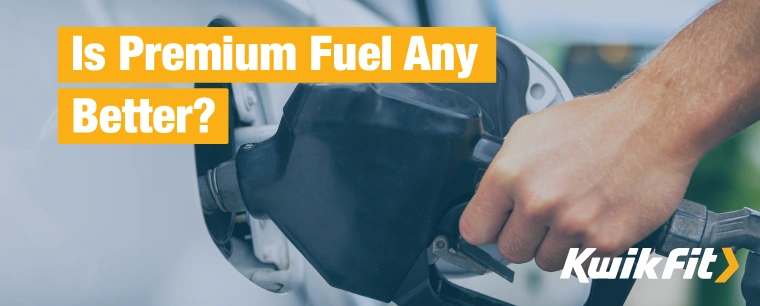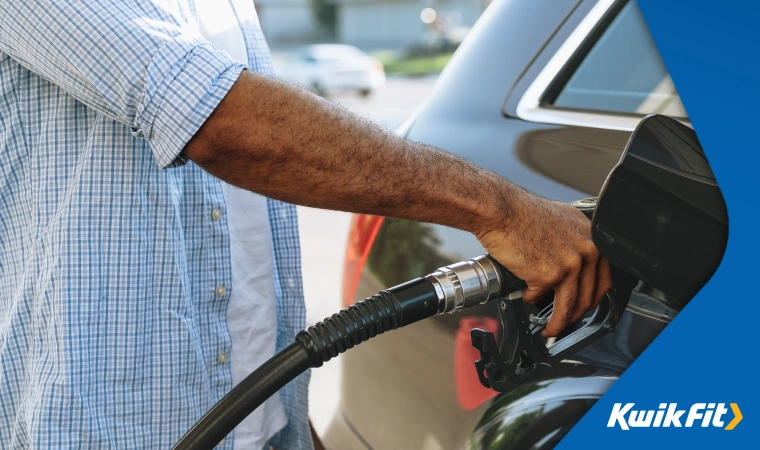Is premium fuel any better?
Jack Dreyer | Monday 14th November 2022 9:00am

When you pull up to the pump at a petrol station, sometimes it can take a second to remember what fuel you usually put into your car. With so many - often similarly named - options, you may be left wondering: is there really much difference?
Most of us know that putting diesel in a petrol car, or vice versa, is never a good idea. But when it comes to the different types of petrol fuels on offer, whatís really the difference? Is premium any better? And can putting the wrong fuel in damage your engine?
Letís find out.
What is premium fuel?
The difference between premium fuel and standard fuel comes in the form of the octane number. The octane number is the standard measure for engine performance, and describes a fuelís stability. The rating is based on the pressure at which a fuel will combust in a testing engine, or the fuelís ability to withstand compression without detonating.
A regular unleaded fuel has an octane number of around 95. Compare this with a premium fuel, such as BPís Ultimate Unleaded or Texacoís Supreme Unleaded, and youíll see these have an octane number of 97.
The makers of premium fuels insist that there are noticeable differences to using these higher quality offerings, from removing dirt from inside the engine to helping everything run more smoothly. But they do come with an increased price tag.
Can all cars take premium fuel?

As we mentioned right at the beginning of this article, most drivers have had drilled into them the dangers of putting diesel into a petrol car, or the other way around. But fortunately, the same doesnít quite apply when it comes to premium or standard fuels.
If youíre not sure what fuel your car should take, then have a read through your handbook. You should find advice on the recommended octane rating necessary to keep your engine working at its best there. You might also spot a sticker giving you information about the right fuel for your car around your fuel cap, or on the inside of the flap to access your fuel cap.
While all cars have a recommended octane rating, putting premium fuel in instead of standard, or the other way round, is unlikely to do your engine any harm. Youíre also unlikely to encounter any issues if you mix the two; for example, if you top up with standard fuel while thereís still premium fuel in your tank.
However, if your handbook recommends a higher octane fuel, and you fill up using a lower-octane option than is recommended, then this could result in engine damage over the long term.
So, is premium fuel better?
There are undoubtedly benefits to using premium fuel in your car. The higher the octane number, the more power gets delivered to your engine Ė meaning that youíre really making the most of every drop of petrol. It also, theoretically, results in a healthier engine over time, due to later ignitions from the fuel itself.
Pair this with the added benefits many premium brands have included, such as cleaning additives that help to keep the engine clean, or lubricating agents, and itís undeniable that when you look at pure chemistry, premium fuel is superior.
However, while there is evidence to show that these perks are undoubtedly effective, there have been studies that show that these additives are equally as effective even if you only use premium fuel occasionally. So, for example, if you fill up with premium fuel once every five times, youíre still likely to see the benefit of perks such as engine cleaning and added lubrication.
Whatís most important to remember is that some cars run perfectly on standard unleaded fuel, whereas others require the additional efficacy of higher octane, premium versions. The key is to check your carís handbook for guidance on getting the right fuel for your car.
Any facts, figures and prices shown in our blog articles are correct at time of publication.
Featured Articles
Is it Illegal to Drive With One Headlight?
Saturday 19th July 2025
Wondering if itís illegal to drive with one headlight? Learn about the safety risks and penalties of illegal blown bulbs and why you should fix them promptly.
Air Con in EVs & Hybrids: Experts Answer Your Questions
Monday 30th June 2025
Does air con drain EV batteries? Can you use the air con while charging an electric car? Find out the answers to these questions & more from Kwik Fitís experts.
Why Is Your Car Making a Noise? Fixes & Tips
Friday 13th June 2025
When your car starts making unexpected noises, it can certainly be quite disconcerting; it may be nothing to worry about, but hereís what you need to know.









